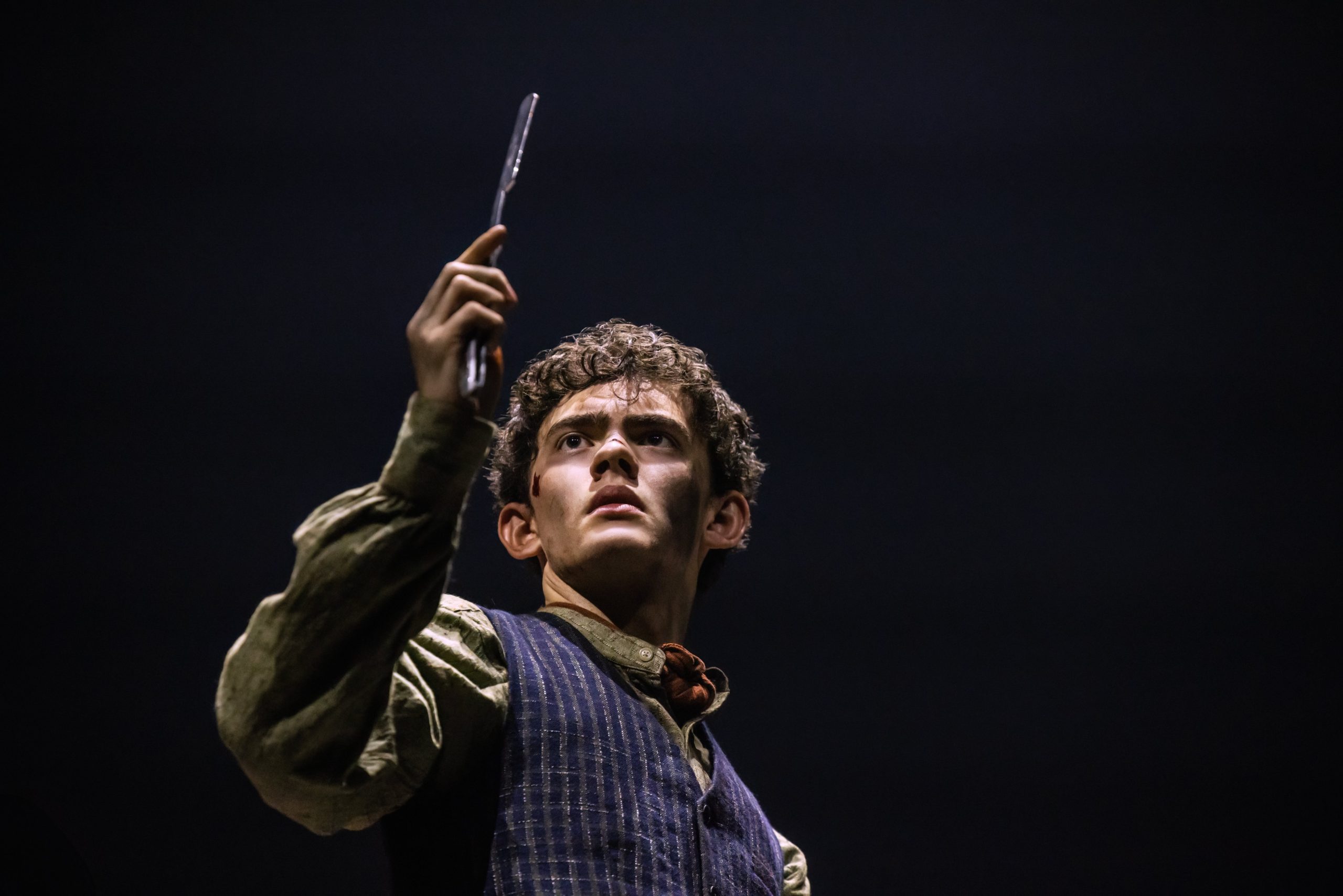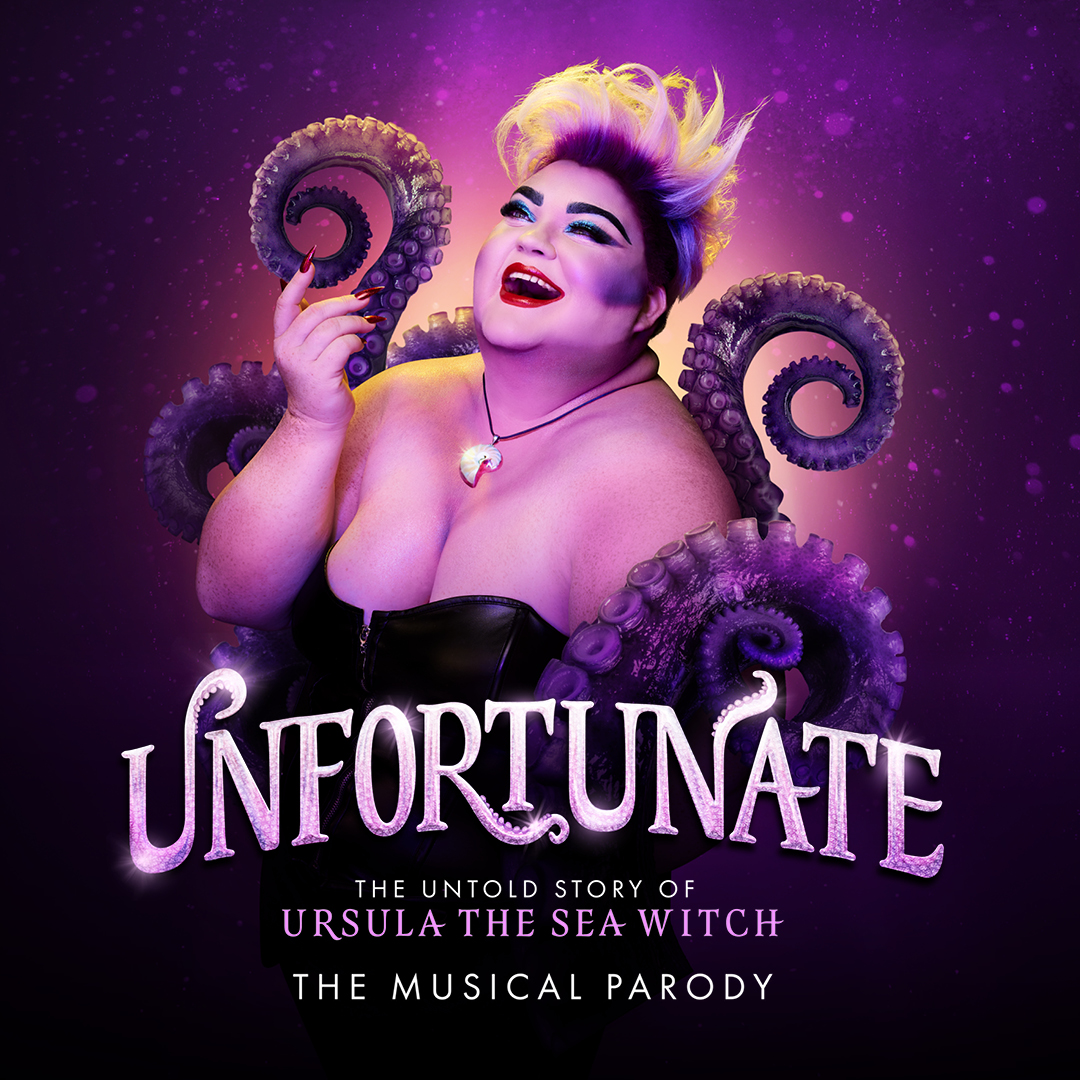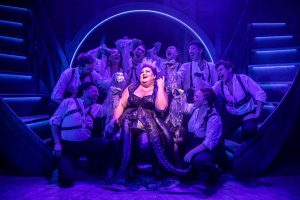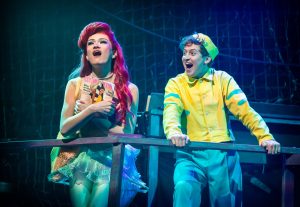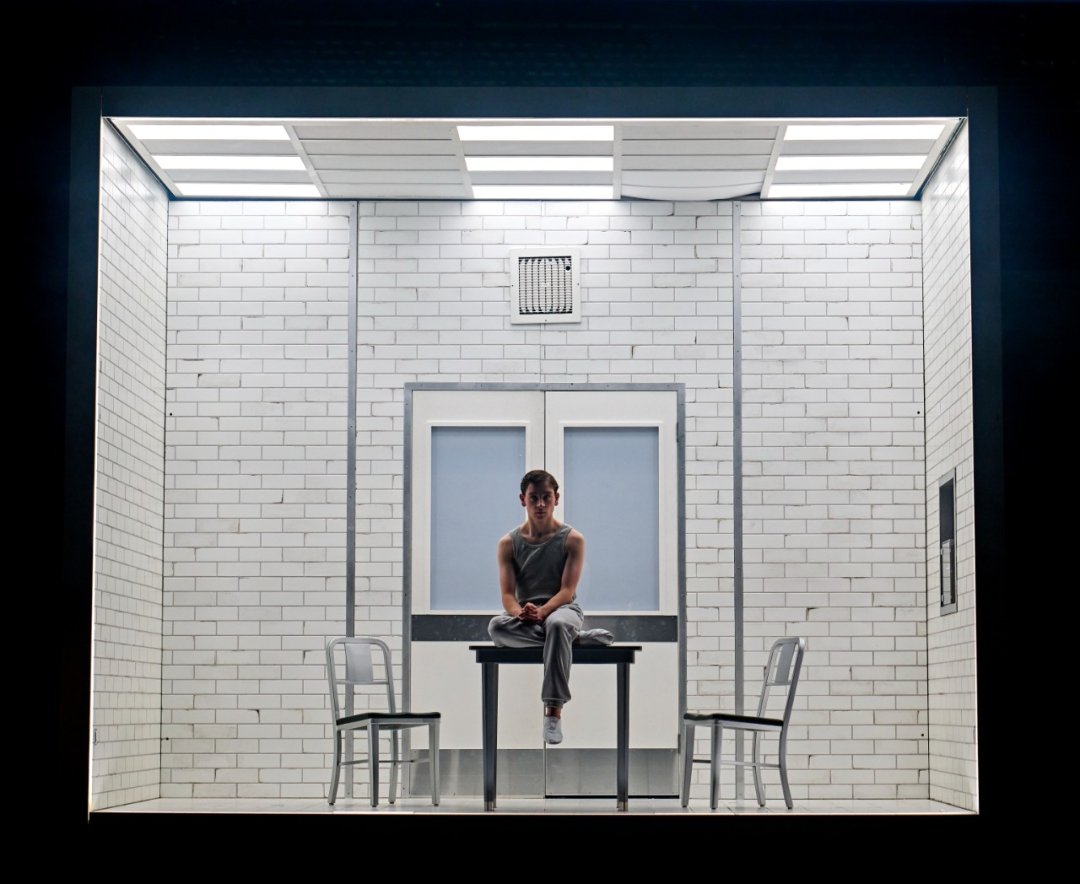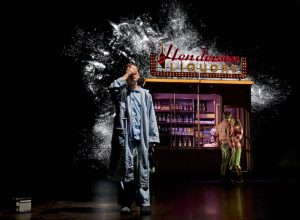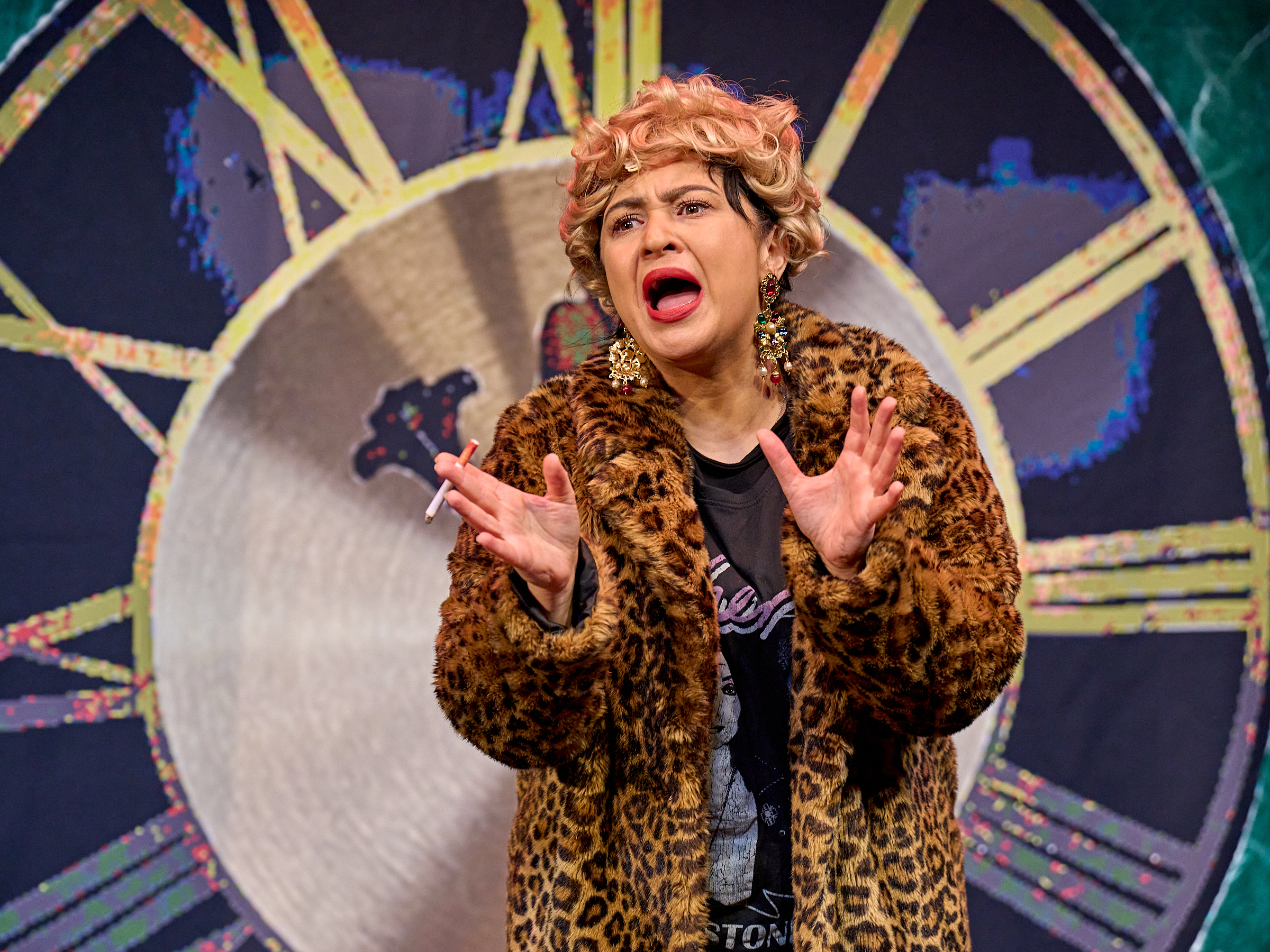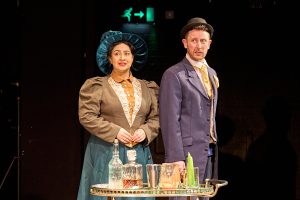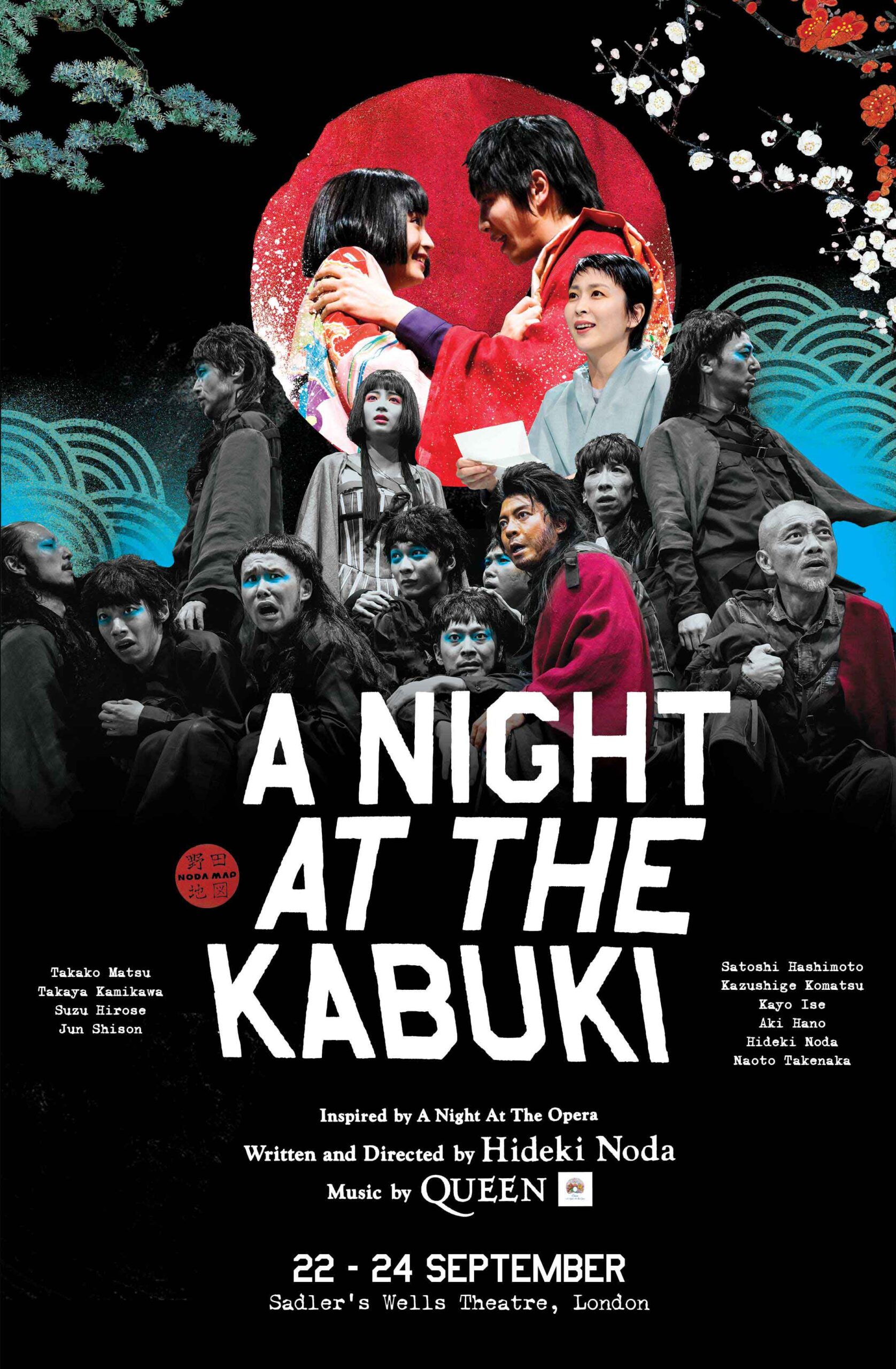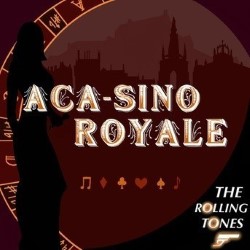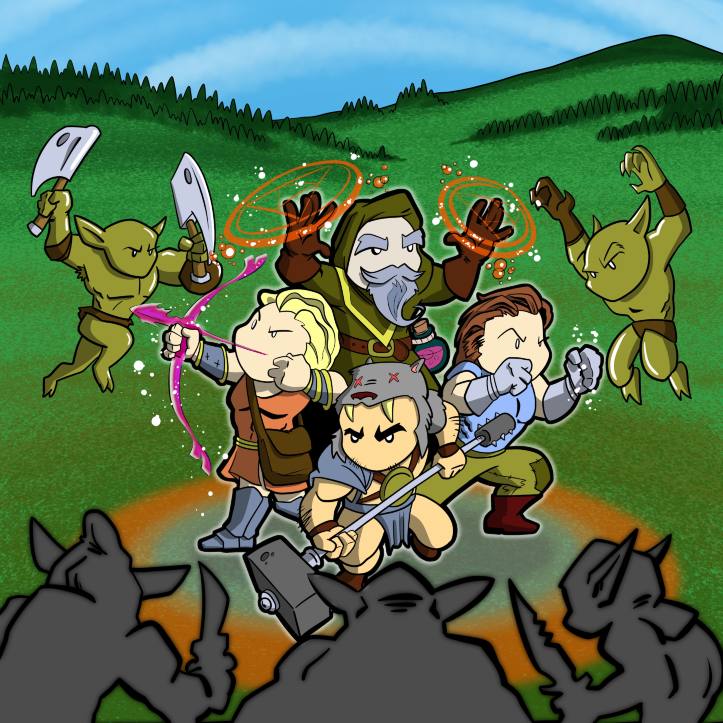One of the criticisms often levelled at musicals is that they are too lightweight and joyful to convey any real human emotions. Sweeney Todd: The Demon Barber of Fleet Street offers the counterpoint to these arguments with its gore, grit, and gruesome storyline.
The 2023 Broadway Revival of Stephen Sondheim’s (A Funny Thing Happened On The Way To The Forum, Merrily We Roll Along) revered 1979 production has recently had a change of cast in several of the leading roles, and STARBURST went along to see if this most infamous tale has been carefully reconstituted, or made mincemeat of.
Even if you’ve never seen any of the previous versions of this story, the tale, which originated in a Penny Dreadful in the Victorian era, has seeped into the cultural consciousness. Broadly, Sweeney Todd is a barber, and from his shop on Fleet Street, he begins murdering his clients, whilst his downstairs neighbour, Mrs Lovett, turns said victims into pies. So far, so standard horror.
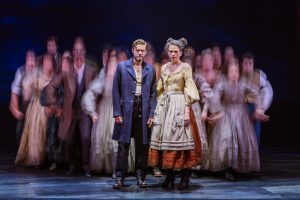
Sondheim’s skill was taking this tale and, working with Hugh Wheeler, who wrote the ‘book’ – the linking dialogue between scenes – adapting Christopher Bond’s version into this musical, now over forty years old, and itself adapted into the 2007 Tim Burton film. Together, Sondheim and Wheeler have elevated the kitschiness and melodrama of the original and created a musical that is notorious for the demands placed upon the performers in the cast.
Here, Sweeney is played by Aaron Tveit (Wicked; American Horror Stories), who plays the character as a man betrayed by a corrupt system. Ultimately, he is driven to his actions by a world that refuses to give him an opportunity for redemption and treats him as the criminal he never was.
Tveit’s performance is measured and rational until Todd’s need for vengeance overtakes his previous grief. Tveit balances the dark and the light with aplomb, offering a Todd who is trying to rescue his daughter, Johanna (Maria Bilbao), and act as a confidant to Daniel Yearwood’s Anthony.
Tveit’s foil is Sutton Foster’s (Young Frankenstein, Elementary) Mrs Lovett, proprietor of the pie shop, which gains in popularity as London’s supply of meat miraculously improves. In a role originated by Angela Lansbury, Foster is definitely channelling the late Dame’s spirit and leans into the comedy offered by the script with both sincerity and gusto.
In taking the role seriously and the situation non-seriously, Foster manages to exploit the ridiculousness of the overall premise whilst delivering a performance which often tugs at the heartstrings.
When appearing in scenes together, Tveit and Foster excel. Their creative decision to play Todd and Lovett as lovers whose exploits spiral brings a lightness of touch to what could otherwise be an increasingly and irredeemably dark descent into madness. The musical numbers, A Little Priest and By the Sea, demonstrate this playfulness and lightness of tone, as Todd and Lovett first compare the potential ‘ingredients’ for Lovett’s pies and, later, debate Lovett’s desire to relocate to the coast with Todd, as a married couple.
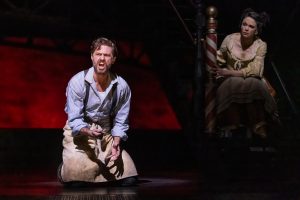
Also appearing in this production is Joe Locke (Marvel’s Agatha – Darkhold Diaries), best known for his role as schoolboy Charlie Spring in Netflix’s fantasy British high school drama Heartstopper. This is his Broadway debut, and we were pleasantly pleased to discover that the Emmy-nominated Locke can sing as well as he can act.
Here, Locke, as Tobias Rigg, serves as an abandoned, abused Victorian Orphan in a performance that requires him to sing almost operatic songs whilst being manhandled and dragged across the stage. That he does so while holding the often incredibly high notes perfectly and fully embracing the complex choreography at times indicates that Locke is truly a talent to watch as he continues to build his career.
Locke’s two highlights include the comedic Pirelli’s Miracle Elixir and the much more serious Not While I’m Around. If we hadn’t known it was his Broadway and professional musical debut, then we would have believed he had been doing this for years.
Amongst the smaller roles are the subplot of Anthony and Johanna, which is perhaps where the piece delivers its darkest, and unfortunately still most relatable element. As his ward, Judge Turpin (Jamie Jackson – The 39 Steps; Flight of the Conchords) seeks to force Johanna into marriage with him. After Anthony’s attempts at rescue fail, Johanna is incarcerated in an asylum, abandoned by the man who was supposed to protect her after she refused to give in to his demands and prevented from making her own decisions regarding her future.
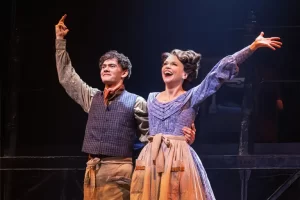
The narrative that Johanna has no ability to control her own destiny or to make her own life choices is one still relevant in many parts of the world today. It is becoming increasingly relevant even in the modern USA, as some states seek to curtail women’s rights and return them to being reliant on men, to the exclusion of their own autonomy. That we can recognise modern parallels in a story set in the Victorian era should give us pause to consider whether much has truly changed at all for those without power in almost 150 years.
When combined, the leading performances, the able and adept support given by performers in smaller roles, and an ensemble giving enthusiasm and respect to Sondheim’s creation lead to a production, which encourages us to question the corruption of authority and the iniquity of a society designed to punish the poor and those deemed to be outcasts.
Balancing the ambition of the performances is the setting within Lunt-Fontanne’s barn, a building located just off New York’s Times Square. The auditorium is huge, and the decision to make the set occupy the full expanse of the stage gives a sense of epicness to the production, allowing the story to be told in multiple parts of the performance space simultaneously.
Dominating one side of the stage is a huge crane, which transforms into a staircase, the asylum, and even part of Mrs Lovett’s Bakehouse. The crane is practical too, with a lovely coup de theatre early in act two, that is easy to miss as Foster and Locke entice Mrs Lovett’s customers with their sales patter during God That’s Good.
The mechanism by which Todd’s customers are murdered and then dispatched to the bakehouse is ingenious and becomes no less terrifying the more times you watch it.
Indeed, as a note of caution, there is a lot of (fake) blood in this production as Todd’s murder spree begins and then, somewhat rapidly, escalates. As a whole, this show is not suitable for younger audiences. However, teenagers may be able to deal with the gore and the heavier themes depending on their individual maturity levels.
This is an immensely well-conceived revival of a show that is beloved by the musical theatre community. Perhaps more operatic in tone than other Sondheim pieces, this production’s careful choices mean that all the disparate elements and sometimes challenging narrative combine to produce a show that delights and satisfies. If you enjoy musical theatre and the kind of stories contained within Penny Dreadfuls, then this show will not disappoint. Highly recommended.
SWEENEY TODD: THE DEMON BARBER OF FLEET STREET continues at The Lunt-Fontanne Theatre, on West 46th Street, New York, until May 5th. Tickets available here




